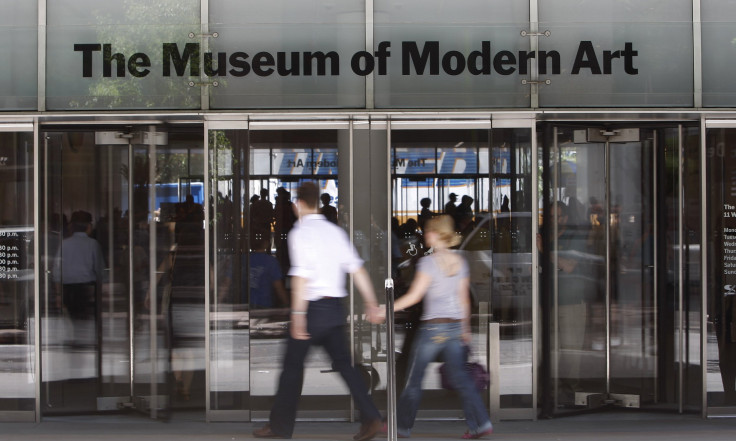Arts Under Trump: MOMA Museum Protests Immigration Ban By Hanging Muslim Art In New York

The Museum of Modern Art in New York City is protesting Donald Trump’s executive order preventing certain citizens from entering the U.S. by taking down some of the most famous pieces in its permanent collection and replacing them with works created by artists hailing from the seven Muslim-majority countries targeted by the travel ban. After the museum closed Thursday night, its crew carefully swapped out seven paintings, including works by Pablo Picasso, Francis Picabia and Henri Mattise, and replaced them with installations done by the Sudanese painter Ibrahim El-Salahi, Iraqi architect Zaha Hadid and the Iranian artists Tala Madani and Charles Hossein Zenderoudi, the museum's senior curator, Jodi Hauptman, told Gothamist Thursday.
MoMA replaces Picasso and Matisse with artists from countries affected by Donald Trump’s ‘Muslim ban’ https://t.co/GHGKcFKeX2 pic.twitter.com/pgnGWReMNg
— The Independent (@Independent) February 6, 2017
A team of master framers, professional art handlers, educators and security guards worked deep into the night to complete the delicate task. "One of the things that you think about if you see these works of the gallery, is that if you have a ban, then you don't get to see these works," Hauptman said.
The museum’s fifth-floor galleries typically house pieces of Western art from the late 18th to the mid-20th centuries, but Hauptman said the museum wanted to hang the alternative works alongside its most renowned paintings to express the sentiment of inclusivity it was trying to achieve through the protest. Alongside each new work is a text explaining why the museum put it there and what it was protesting.
In response to last week's travel ban, we have installed works by artists from the nations denied entry to the US: https://t.co/yQSHZUualB
— MoMA The Museum of Modern Art (@MuseumModernArt) February 3, 2017
“This work is by an artist from a nation whose citizens are being denied entry into the United States, according to a presidential executive order issued on Jan. 27, 2017. This is one of several such artworks from the Museum’s collection installed throughout the fifth-floor galleries to affirm the ideals of welcome and freedom as vital to this museum as they are to the United States,” plaques placed next to the new artworks read.
Trump’s executive order barring citizens of Syria, Iran, Sudan, Libya, Somalia, Yemen and Iran from entering the United States for a period of 90 days on the grounds of national security has been widely condemned in the art community, with other museums across the country like the Getty Museum in Los Angeles and the United States Holocaust in New York City releasing statements about how the ban's exclusivity undermines the museums' efforts to give all individuals places to express themselves free from any judgements based on someone's nationality.
© Copyright IBTimes 2024. All rights reserved.












